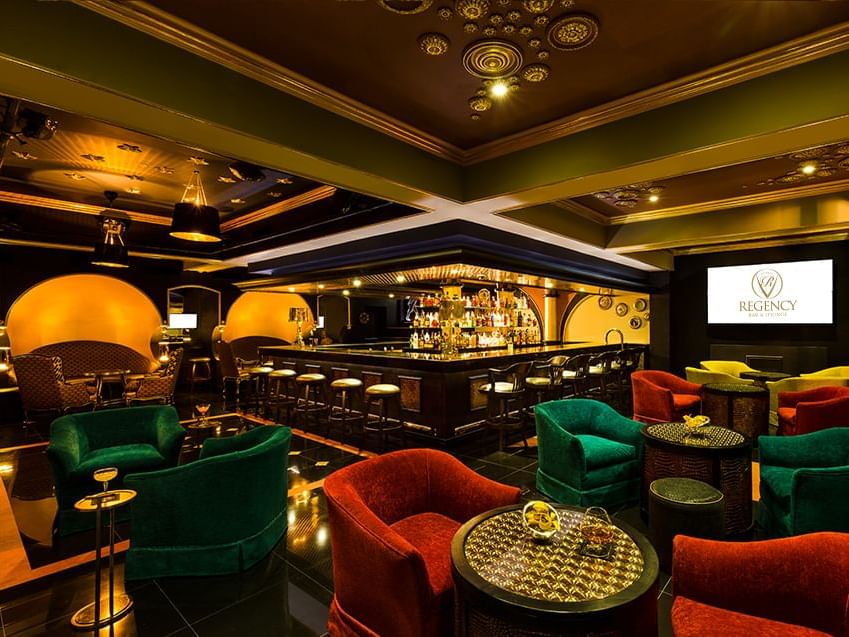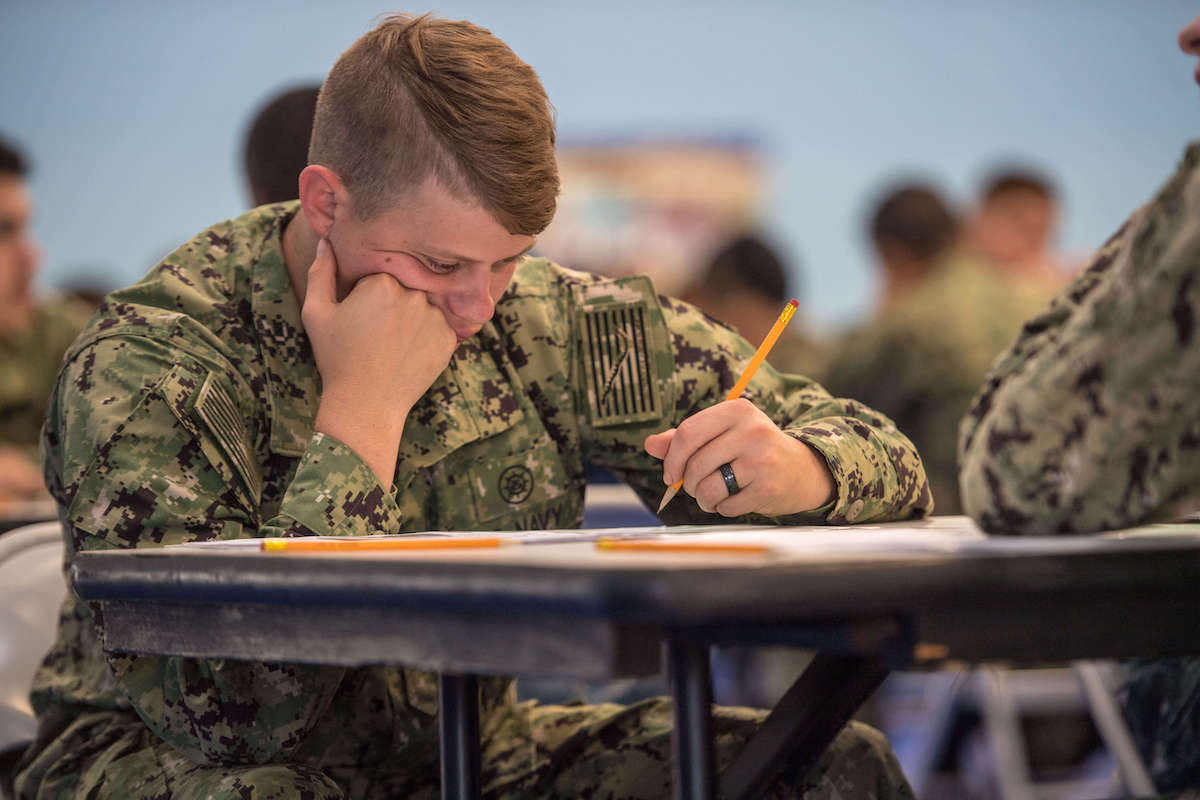INTRODUCTION
Fourah Bay College library came into existence in 1827 and it was affiliated with Durham in 1876. This affiliation scheme enlarged the college regulations, and as a result of this, new phases of development were introduced and included in the improvement in the condition of the library. Its first Board of Curators was appointed and a regular supply of standard newspapers and other publications were provided. Professor Richards was appointed Librarian-In-Charge with Mr. T. Taylor as Library Assistant.
DEVELOPMENT OF FOURAH BAY COLLEGE LIBRARY
Fourah bay College Library management was virtually established, and attracted valuable donations such as a special collection donated in 1881 by Rev. H. Wright who served as Honorary Secretary to the Church Missionary Society. Later in 1917 Bishop James Johnson bequeathed his set of 24 volumes of the Encyclopedia Britannica to the College Library.
During the World War II period, that is 1939-1945, little was done about the development of the College Library. By then the library was located at Mabang, and continued to maintain a library which was originally intended to be an Agricultural College. The College had few teachers and a small student population of about twenty students. The conditions of the war in the 1940’s caused the library to be managed by student librarians. The library was generally faced with lack of resources in the war years. In those years the library minimal collections consisted mainly of theological and literary works which was transferred to Mount Aureol. The materials was housed in several buildings such as the student dining hall, the college Chapel, the College Bookshop, stores and Games and Sports Office.
The library facilities of the college at this stage formed part of the higher education development programme. The most area of priority at Fourah Bay college was the development of Library. With the establishment of a stable information Centre, Fourah Bay College became an attractive venue for foreign funds. In 1954, following a visit to the Fulton Commission which improved the status of the college, the library was awarded a grant of $8,000 by the Carnegie Corporation of New York, to be used for the purchase of essential reference and bibliographic materials. The British complemented this donation in 1955 with a grant of £15,000 from the Colonial Development Welfare Funds. Two-thirds of those donations (£10,000) were spent on books and periodicals and the rest on equipment. These grants and other donations led to an accelerated growth of the library and formed the foundation of a steady development during the 60s. It was at this critecal period that the library was assigned its rightful position as a priority affiliated college of the University of Durham.
In 1961, the second expatriate Mr. R.S. Burkett, relinquished his appointment as College Librarian after a period of four and the half years. The third expatriate librarian, the late Mr. Michael Jollife (after whom the library has been named), was appointed in 1961. He was initially concerned with the improvement of the physical facilities of the library. In 1968, the college received full university status and with this elevation, the library also played leadership role in the development of other librarians in Sierra Leone. Within the library itself, Mr. Jollife established the Reprographic and Micrographic sections. In his 1961/1962 annual report, Mr. Jollife decided to the provide funds under the British Technical Assistance Programme for the purchase of bindery equipment and Mr. W.J Askew, a British Book Binder was assigned this responsibility. He arrived in Sierra Leone in August 15, 1964. By then, there were ten thousand (10,000) books and periodicals for binding and rebinding. Mr. S.T Browne, a Sierra Leonean craftsman succeeded Mr. Askew after his three years tenure in April 1966 as Head Book Binder. Currently, the Bindery is headed by Mr. Patrick James. At the end of March, 1970, Mr. Michael Jollife resigned his post to become Librarian at Royal Halloway College, London and was succeeded by A.C. Butler who arrived in 1971. Thus, Mrs. Gladys Jusu-Sheriff was the first Sierra Leonean College Librarian after Mr. Butler left in 1972.
Fourah Bay College administration reacted to an acute shortage of library personnel in that period, and instituted a course for the City and Guilds of London Assistant Certificate jointly organised by the college library and the Extra-Mural Department. Deficiencies in the library certificate provided an apparent long-term need for a library course in Sierra Leone. This programme was a junior assistant’s qualification which was purely western system of library management and there was an evident gap between the City of Guilds and the ALA. There was a need to institute a programme locally to provide an intermediate qualification to bridge the gap between the junior clerical level staff and full professionals. This brought about the response for the formation of the Institute of Library, Archive and Information Studies in 1986 through the dynamic leadership of Mrs. Gladys Jusu-Sheriff who eventually became the first director. In November 1999 the Institute was merged with the Mass Communication unit within the Faculty of Arts to form the Institute of Library, Information and Communication Studies (INSLICS) offering certificate, diploma, degree and postgraduate qualifications.
The late Mrs. Deanna Thomas succeeded Mrs. Gladys Jusu-Sheriff as librarian of Fourah Bay College library in 1990 but traveled out of the country in June 1997 during the interregnum of Freetown. Mr. Oliver Harding acted as librarian in her absence until June 1998 when a more senior officer in the University of Sierra Leone, the late Prof. L.N. M’Jamtu-Sie the then librarian of College of Medicine and Allied Health Sciences (COMAHS) was appointed to supervise activities in the library. She resigned in January 2005 and returned to COMAHS. Mr. Donald Davies acted until August 2005 and was succeeded in an acting capacity by Rev. Oliver Harding who returned to Sierra Leone from Nigeria after he obtained a second master degree in Biblical Studies from West Africa Theological Seminary, Lagos (an affiliate of the University of Nigeria, Nsukka). He is still the current Acting Librarian at Fourah Bay College Library with only twenty-nine(29) staff. Of the twenty-nine staff, only eight(8) are professionals. This indeed is a big setback to Fourah Bay College Library which needs to be rectified.
Currently the library consists of a four-storey building composed of the following sections: The lower ground floor consists of the Bindery and the Sierra Leone Collection. The Ground Floor consists of the Reception Desk, Librarian’s Office, Issue Desk, Cataloguing Department and General Reference collection, photocopying room, the American Shelves and the United Nations Collection. The first floor is the Periodicals/Serials Collection, while the second floor represent the lending collection or the textbook collection and the third floor which originally housed lending library matarials is currently not functioning due to licking roof of the building.
The following are the various sections in the library and their functions:
- Librarian’s Office & Acquisitions Department;
- Cataloguing Department;
- Issue Desk;
- Textbook Collection;
- Periodicals Department;
- Sierra Leone Collection;
- United Nations Collection;
- The American Shelves/Corner; and
- The Bindery
The first section is the Librarian’s Office which generally controls all other areas in the library. The office also serves as the Acquisition’s Department. This is where selection of library materials is done. Lecturers are encouraged to make selection of materials to be acquired for their use. Once the selection is made and bibliographic data are scrutinised, the stock of the library to avoid unnecessary duplication of orders is checked. These materials are sent to the library, and their details are checked against those of the order slips following these materials which are accessioned before passing them over to the Cataloguing Department. There is also availability of audiovisual equipment such as projector which the librarian uses during orientation programmes and also used to conduct lectures.
Library materials on receipt from the Librarian’s office/Acquisitions Department are classified and catalogued in the second section. This second section is not within sight or it is out of bounds. The organisation of materials into a set pattern of classes facilitates the arrangement of these materials on the appropriate shelves with materials on specific subjects being housed together in the same area of the library. The excellence of the Catalogue is the pride of the library because once a material is wrongly classified and shelved, it does not stay with members of its class and in some cases, it is like a lost material. Fourah Bay College library currently utilise the 23rd edition of the Dewey Decimal Classification Scheme and the AACR2 (Anglo American Cataloguing Rules 2).
The third section is also called the Circulations Department where materials that go out on loan are charged to patrons and discharged on return to the library. Information about materials not found on the shelves could be retrieved from the Circulations Section. Shelving arrangements are also under the supervision of the Circulations Section staff. This section also process and issue students library cards.
The forth section is currently the most heavily used section in Fourah Bay College library. It is a closed access collection. This means that materials are not directly available to readers but issued out upon request. Materials in this section cover varied disciplines based on the curriculum of the college. This collection also houses past examination papers of courses taken on campus. Messengers from the library are sent to examination halls with a formal letter from the Librarian requesting copies of examination papers from invigilators. These are eventually sorted out and sent to the bindery department to be bound into volumes.
The fifth section is also called the Journal/Serials Section. It houses quarterly, bi-quarterly, annually, semi-annually publications. These are publications of several volumes which come about at regular intervals and intended to indefinitely continue. Several authors contribute articles to them. They also have distinct titles. At the end of the year, back issues are sent to the bindery to be bound into volumes and stocked in the section for researchers on varied disciplines. This section can also classify and catalogue periodical materials to ease work done by the Cataloguing Department.
As the name implies, this sixth section houses material about Sierra Leone. Materials in this collection are difficult to weed since they form part of the national bibliography of Sierra Leone. The unit also contains newspapers which are bought daily. This grey literature is unique as the newspaper collection date-back to the 1930s to present day.
The seventh section is located in the Ground Floor of the library and is currently in a room renovated by the United Nations and stocked with computers, printers, photocopiers which are used by students, lecturers and administrative staff. However, this section is managed by a private owner instead of FBC library.
The eighth section is the American Shelve. This is located at the Ground Floor of the library. It was established in July 2007, after a “Memorandum of Understanding” signed by the then U.S. Ambassador and the then Deputy Chancellor of Fourah Bay College. The purpose was to promote public diplomacy of the Embassy of the United States of America in Sierra Leone, hence its name the “American Shelves.” Materials housed in this collection are purely American. Collections include books, CD-ROM, Posters, Periodicals/magazines and other programming materials of the Embassy of the United States of America in Sierra Leone. The American Corner has a television set. The book collection consists of materials in history, literature, education, health, economics, management, business, culture and law of the United States of America. Funds are usually made available by the Public Affairs Sections of the United States Embassy in Sierra Leone to the library to undertake joint sensitisation programmes on relevant issues to society such as black history day, democracy, human right, the girl child and “Ebola”, in which keynote speakers are either provided by the Embassy or the library from local professionals with regards the topic of discussion. Video shows are also organised.
The ninth section is located at the Lower Ground Floor and is the economic nerve centre of the library. Paperbacks with less than fifty pages are treated as pamphlets and are processed and stocked in boxes. Materials with fifty pages and above are regarded as books and sent to the bindery for hard covers. Customers desirous of using this section of the library must observe the following procedures:
- Secure proforma invoice for binding work;
- Settle invoice at Librarian’s office and collect receipt for amount paid;
- Collect bound work from bindery on presentation of a valid receipt;
- Departmental jobs from FBC should be accompanied by an order from respective heads of departments and paid for in cash or cheque;
- All cheques should be made payable to Fourah Bay College.
Other kinds of jobs done in the bindery include rebinding dissertations/theses, paperbacks, newspapers, engagement Bibles, ledgers and gold lettering. However this sections is limited with basic bindery equipment and facilities to bind and rebind the library materials.
CHALLENGES
It is clear that Fourah Bay College Library has some challenges in managing the library. Some of the challenges are as thus: inadequate funding and current materials; inadequate sitting accommodation; inadequate trained and qualified staff; and inadequate provision of photocopying machines. Of the varied challenges, the major being the inadequate sitting accommodation and the inadequate funding and non-current materials.
The current state of Information Management amidst the new management at Fourah Bay College is that there is regular power supply which is obtained from three (3) sources, that is, the Electricity Distribution and Supply Authority (EDSA); a stand-by generator which is shared with the main administrative building; and a solar panel which only supplies the lower and ground floors of the library. This has a lot of challenges for the library as the other floors are presently out of electricity supply as the entire building is under refurbishment. There is availability of Internet connectivity via hotspots, though its strength is very weak only users with sophisticated systems can have access to it. The developments of ICTs have offered Fourah Bay Library existing and challenging opportunity that requires it to respond positively in all facets of their services and functions if they are to remain relevant in the new information age.
RECOMMENDATIONS
I recommend that:
- the university management should provide more sitting accommodation by building more library structures.
- University should employ more trained and qualified professional librarians or immediately promote the existing staff that have already gone through the librarianship training;
- the university should provide more funds so that the old material be replace the currents ones;
- Sierra Leone Collection which hold a significance number of grey literature should be digitised and create online database that should be access by researchers. The bindery section should also be provided with modern machines for printing and binding books on reasonable cost as is the income generating section of library;
- the internet connectivity should be stronger that the existing one;
- electricity power supply should be continuous;
- lecturers-library staff relationship should be strong in selecting library materials base on the college curriculum; and
- disaster management plan should be provided in case any fire outbreak or flooding.
CONCLUSION
It is evident that Fourah Bay College Library over the years has been crippling with inadequate trained and qualified library professional due to aging librarian crisis. The remaining professional staff are not promoted immediately after retirement of a retiree staff because of excessive bureaucracy/protocol in the administration process. Thus the trained and experienced staff had to wait for years or satisfy certain academic bench marks before they are promoted.






More Stories
The Role of Arduino Starter Kits in STEM Education
Unraveling the Mystery: How to Choose the Perfect Private Loan for College
Your Path to Success with College Avenue Student Loans